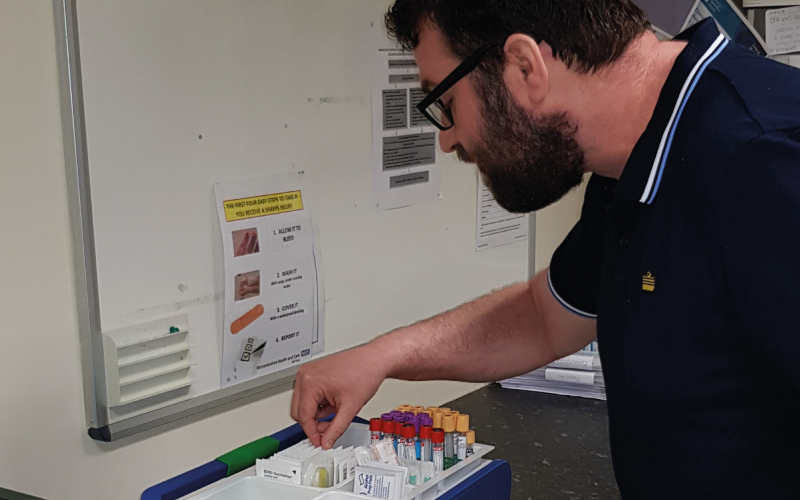
Warren, who is a charge nurse at specialist autism high dependency complex care service Cygnet Wast Hills in Kings Norton, found that it was difficult for people with autism or a learning disability to have their blood taken, so basic health and screening tests could often not be completed.
He said, “Giving blood is not a pleasant experience for anyone but if you don’t understand why blood is being taken or that it’s good for your health, then it can cause a lot of anxiety and be very difficult for someone.
“When a person can’t communicate how they are feeling easily, it’s really important that their health is closely monitored and that can mean testing blood, for example for monitoring sodium levels.”
It is well-known that people with a learning disability and/or autism can struggle to access primary healthcare facilities, which can mean people are at higher risk of unidentified health concerns that affect their physical and mental wellbeing.
It was these health inequalities that Warren wanted to focus on with the aim of increasing the number of people he supports to take part in physical health screening, including blood tests. His aim was to reduce the number of individuals living with unidentified health issues and improve their quality of life.
Warren added, “When a person has autism, routine and familiar faces are very important. So, if a person had to leave Cygnet Wast Hills to go elsewhere for tests, or someone who they didn’t know came to see them to do tests, this could also raise anxiety levels and could be distressing for them. This may lead to them missing out on important basic health screening.
“It could also be that the testing was booked in to be done on a day when the person wasn’t feeling the best and it couldn’t happen. We wanted to alleviate that.
“I undertook a two-day phlebotomy course – we learned the physiology of the veins, the techniques to take blood, etc. Working in a person-centred way and ensuring the individual is in a place they know, we were able to, over a six-month period, ensure everyone at Wast Hills had had a blood screening. One thing that was important was that I am familiar to the people we support and can work with them on a day when it is right for them.
“As a result of the success here, other services have asked me to support the people who use their services also.
“It’s been, and remains, a really important part of helping people remain as healthy as possible. The results have found in some cases that people’s iron levels have been low, so we have been able to treat that immediately – that in itself is great as someone who may have been lethargic because of anaemia but wasn’t able to communicate that has seen an improvement in wellbeing and overall quality of life.”
Find out more about Cygnet Wast Hills